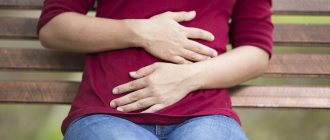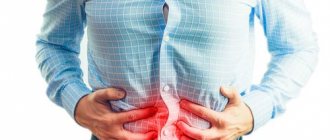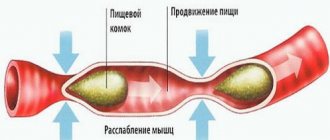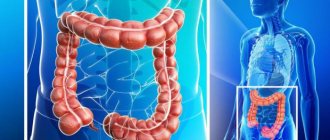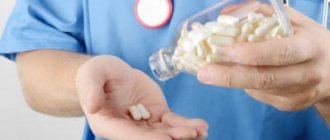Causes of intestinal dysfunction
The rhythm of life of a modern person forces him to eat dry food and on the run. At the same time, of course, the food he prefers is semi-finished products, and not at all self-prepared hot lunches. That is why almost 90% of the inhabitants of our planet suffer from gastroenterological pathologies. The problem of constipation, or constipation, is especially relevant. The main sign of this pathology is the absence of bowel movements for two days. This phenomenon is accompanied by pain in the intestines and bloating. Sometimes prolonged stool retention is a sign of a dangerous disease.
How often will you have bowel movements? This directly depends on the lifestyle that a person leads, on his habits and nutrition. Causes of constipation may include:
- lack of fluid in the body;
- inclusion of a large number of fried and fatty foods in the diet;
- neuroses, stress and depression;
- chronic as well as acute ailments of the digestive organs.
What is constipation
Constipation is considered to be a delay in bowel movements for more than two days.
This condition is also characterized by incomplete bowel movement, accompanied by unpleasant sensations, changes in the consistency of stool and the need for excessive straining during bowel movements. Most often, people who neglect the rules of a healthy diet and lead a sedentary lifestyle are susceptible to constipation. Constipation is classified according to two criteria: etiology (cause of occurrence) and pathogenesis (mechanism of development).
According to etiology, constipation is divided into:
- Primary. They arise as a result of congenital or acquired pathologies of the colon.
- Secondary. They are a consequence of another disease, injury, as well as side effects of pharmacological drugs.
- Idiopathic. This definition hides the impossibility of finding out the exact cause of intestinal dysfunction. Constipation of unknown etiology is also called cryptogenic.
Classification by pathogenesis:
- Nutritional. Develops when the diet is disrupted and water consumption decreases.
- Mechanical. Caused by neoplasms in the large intestine. They can be tumors, polyps or lymph node clots, as well as adhesions or kinks.
- Dyskinetic. It occurs due to impaired intestinal motility, which is a consequence of nervous tension. This type of constipation is also called neurogenic.
First aid
How to improve bowel function during constipation? In case of emergency, you will need to take medications. However, it is worth keeping in mind that frequent use of such drugs, as well as their overdose, is not only undesirable, but also dangerous. The intestines will be constantly waiting for artificial stimulation, which will lead to the need to increase the dose of medications. That is why the use of medications should be made only when all other methods are ineffective.
What mistakes do we make when treating at home?
Blanket belief in laxatives is harmful. Guttalax and others help a person quickly and easily. He decides that the problem is under control - and takes the first step into the vicious circle of “addicted to laxatives.”
Why is excess medication dangerous?
Our body is amazingly intelligent. If we artificially stimulate the function, the body will get used to the dose and require it to be increased. Or he will protect himself from the stimulant by ceasing to respond to it.
Excitation - inhibition. This is how the body works. The more we whip, the deeper the irresponsibility. The “addiction” syndrome is especially pronounced when the whip is a synthetic medicinal substance.
What is our task?
Avoid continuous use of medications, at least until it becomes clear that the regimen is unsuccessful.
Therefore, an effective regimen for treating constipation and choosing a medication has certain stages.
How to choose a laxative: doctors’ algorithm
Do no harm! - the main commandment of a doctor. Selecting a laxative for constipation begins with finding ways to get rid of constipation and improve bowel function without medications:
- First, they correct lifestyle flaws - increase the volume of fiber and water. A significant proportion of people get rid of constipation after 4 weeks of regular regime measures.
- If stable emptying is not achieved by nutritional methods, a laxative is chosen to retain fluid in the bolus. The active substance prevents the absorption of liquid, the lump remains loose and voluminous - it is easier to move it.
- The third step is to add a medication that irritates the intestinal wall. This leads to increased peristalsis: the food bolus moves faster to the exit. The third stage is the fate of difficult chronicles, who have already been well examined after a long period of observation by a doctor. Most often, such people are diagnosed with a serious pathology leading to constipation.
Algorithm for a doctor’s actions when you need to relieve a person of constipation
Health rules
How to improve bowel function during constipation? To do this, you need to find out the reason for the failures in its operation. Intestinal motility is directly dependent on nutrition and lifestyle, as well as the health of the nervous system. You can often get positive results if you give up bad habits, follow a daily routine and eat a balanced diet. If all these conditions are met, the act of defecation will occur at the same time and will not cause inconvenience to the person.
To normalize intestinal function, it is enough to follow the following rules:
- do not suppress the natural urge to defecate;
- develop the habit of going to the toilet at the same time;
- do not be distracted during the bowel movement (by doing crossword puzzles, talking on the phone, etc.).
In addition, you should try to avoid stressful situations. Negative emotions negatively affect bowel function. They contribute to muscle spasms, which leads to constipation and can cause cardiac problems.
Constipation: what is considered normal and pathology
The act of defecation is an intimate topic. Alas, we were not taught to treat it as a physiology that needs to be monitored.
- Look back at what the chair looks like.
- Worry that you only go to the toilet once every 3 days.
What indicates proper bowel function?
Having stool once a day. It is shaped, moderately soft, with a diameter of 2 human fingers, brown in color and does not contain any undigested food residue (i.e. you cannot see a piece of apple or bean from the soup).
What is considered constipation?
No bowel movements for 3 days? Cause for concern. The frequency of such episodes is growing, and are there delays of up to 4 days or more? It's time to get serious treatment to get rid of the problem.
Gastroenterology deals with diseases of the digestive system. Doctors distinguish 3 types of constipation:
- You are dealing with atonic constipation, if the stool is dense in the first portion, it comes out painfully, and towards the end the process occurs more freely, i.e. the contents soften and gain volume. Atonic means insufficient strength of intestinal movements - weak peristalsis.
- Spastic constipation, if the mass is formed, pain and discomfort are absent or insignificant, but there is seething and colic in the abdomen. This means chronological disharmony in bowel movements.
- When a person has chronic constipation, he experiences both discomforts. At the same time, stool has a specific texture. It is hard and dry, as if pebbles had stuck together in one pile. They arise due to the absorption of liquid while the food bolus remains in the intestine for a long time.
Laxatives
How to improve bowel function during constipation? The fastest way to eliminate the problem is medications. They are designed to provide a laxative effect, which alleviates the patient's condition.
Bowel medications for constipation are available in various forms. They can be in the form of tablets, syrups, suppositories and drops, as well as chewable lozenges. Their main advantage is the speed of impact. So, by taking this drug in the evening, its laxative effect can be obtained already in the morning. This becomes possible due to the strengthening of sluggish peristalsis of the colon due to chemical irritation of its receptors. But it is worth keeping in mind that with long-term use of such drugs (more than 10 days in a row), the development of degeneration of nerve tissue, intestinal agony, as well as an imbalance of the electrolyte composition of the blood is possible.
Laxatives have a whole list of contraindications, including:
- period of pregnancy and lactation;
- increase in anal fissures;
- perforation of the stomach;
- stomach ache;
- peritonitis;
- imbalance of water-salt metabolism;
- intestinal obstruction;
- cystitis.
How to normalize bowel function during constipation? For this purpose, laxatives may be prescribed. Let's look at the most effective substances that liquefy stool, as well as those drugs that contain them as main components.
- Bisacodyl. Based on this substance, such drugs as “Lixacodil”, “Stadalax”, “Pirilax”, “Laxatin” are produced. These tablets are recommended for patients to prepare for intestinal endoscopy, as well as for patients whose problem develops after surgery. Preparations with this active ingredient are also used for constipation resulting from dietary intake. These laxatives are usually prescribed, 1 tablet before bedtime. If there is no desired effect, the dosage is doubled.
- Sennosides A and B. Preparations with this active substance are Tisasen, Senade, Laxana, Gerbion, Regulax. The same group of laxative medications includes Senna chewable lozenges. Such preparations are created on a plant basis. The main component of their composition is the leaves of angustifolia and holly senna. Taking such drugs is not addictive. They are prescribed for hemorrhoids, as well as constipation resulting from sluggish intestinal motility. This laxative is used only once during the day, usually before bed. The effect of taking it occurs after 6-12 hours.
- Sodium picosulfate. This group of laxatives includes drugs such as Slabilen, Guttasil, Regulax, Guttalax. Medicines, the main component of which is this substance, have neither smell nor taste. Their effect extends to the area of the colon, resulting in increased peristalsis of the entire organ. Due to the action of these drugs, the level of absorption of electrolytes and water is reduced. Consider, for example, “Weak.” Instructions for use, reviews and price indicate that it is quite popular among patients with problems with stool. Created on the basis of sodium picosulfate, this remedy stimulates the receptors of the colon mucosa, promoting increased peristalsis. The desired effect after taking the drug occurs after 10-12 hours. The product regulates stool in case of anal fissures, proctitis and hemorrhoids, and is used in the process of preparing the patient for surgery, as well as for x-ray and instrumental examination. Such indications are contained in the instructions for use. “Weak” has only positive reviews about the price; consumers point to its availability. The cost of such a laxative starts from 180 rubles. The drug "Guttalax" for constipation also allows you to get a fairly quick effect. Taken in the evening in the form of tablets or drops, it promotes complete bowel movements in the morning. Moreover, the use of this remedy is possible regardless of the factor that caused constipation.
- Glycerol. Suppositories are produced based on this active ingredient (Glycerin, Glycelax). Such drugs lubricate hardened fecal matter, which ensures their easier passage through the intestines, making a person want to have a bowel movement. Laxative suppositories are recommended as a preventive measure for people who should not strain during bowel movements due to hemorrhoids and anal fissures. They are used after a heart attack, as well as in the case of anorectal stenosis.
What medications are used to relieve bowel movements for constipation?
Treating constipation on your own will only make the situation worse.
There is a large selection of remedies to normalize intestinal function during constipation. They are divided into several groups depending on their mechanism of action. Medicines of each group have their own advantages and disadvantages, and are prescribed depending on the characteristics of the patient’s disease. Independent use of certain drugs without prescription and supervision of a doctor leads to serious complications, for example, intestinal obstruction.
Medicines to enhance peristalsis
Drugs in this group act as an irritant to intestinal receptors, which leads to stimulation of peristalsis. Fecal masses actively move through the intestines, and the urge to defecate occurs. Herbal remedies in this group are based on senna and buckthorn, while synthetic ones are based on substances such as bisacodyl and sodium picosulfate. Irritating medications are: Guttalax, Picolax, Bisacodyl, Ganaton, Zirid.
The main advantage of this type of medication is its rapid effect. It is recommended to take the product before bed, and bowel movements will occur in the morning (after 6-10 hours). Uncontrolled use leads to disruption of the water-electrolyte balance, as a result of which the intestinal muscles lose tone, causing atony and laxative disease.
To normalize motor skills
The drug normalizes the secretion of digestive enzymes.
Medications of this type are stimulants of type 4 serotonin receptors. Serotonin (“the hormone of happiness”) regulates the release of digestive enzymes and intestinal motility, and type 4 receptors ensure normal functioning of the gastrointestinal tract. Among the drugs of this type, the most popular is the drug Tegaserod (Fractal), which causes a physiological response of serotonin receptors. Its action is manifested:
- active secretion of intestinal juice;
- normalization of tone and motility of the gastrointestinal tract;
- lack of tension during bowel movements.
While taking Tegaserod, bowel movements become more frequent, stool softens, and abdominal pain is eliminated. Recommended for use within 1–1.5 months. The effect is noticeable after the first week of treatment and lasts 3 weeks after completion of therapy. The product has a number of contraindications and can lead to side effects. Therefore, treatment of constipation with its help is carried out only under the supervision of a doctor.
Antispasmodics
Antispasmodics are prescribed as part of complex therapy.
The peculiarity of antispasmodic medications is to reduce muscle contractions. Prescribed as part of complex therapy for constipation to eliminate abdominal pain, which is typical for this pathology. The most popular means are:
- "Mebeverin" ("Duspatalin", "Meverin"). The drug does not affect peristalsis, intestinal muscle tone remains normal. This eliminates muscle spasms that cause constipation. Prescribed 400 mg per day for 2–4 weeks.
- "Spasmomen." Reduces spasms of intestinal smooth muscles. Prescribed 120 mg per day.
Laxatives
For constipation, laxatives are used to work the intestines, which vary depending on the mechanism of action. Before choosing one option or another, you need to familiarize yourself with its features and consult your doctor. In addition to drug treatment, to improve intestinal function, it is recommended to adjust the diet and increase physical activity.
Increasing stool volume
Bran helps cleanse the intestinal walls.
Such drugs absorb large amounts of water and increase significantly in volume. Fecal masses soften, intestinal motility is normalized. These properties have:
- Bran. Take in its pure form, after steaming it in hot water or adding it to prepared dishes. Their use may be accompanied by bloating.
- Plantain seeds. During treatment with drugs based on them, such as Mucofalk, Defenorm, you need to drink a lot to prevent the development of intestinal obstruction.
- Sea kale. Used for normal bowel function if desired.
Due to the sensitivity of the issue, people suffering from constipation are embarrassed to see a doctor and try to solve the problem on their own, which leads to intestinal atony and other complications.
Stool softeners
Products of this type soften hard stool and promote their removal. Suitable for oral use or as enemas. Most often prescribed:
- Olive oil. It is a good opportunity to get rid of constipation and normalize the flow of bile. Take 3-4 tbsp. l. in a day. For an enema you will need 50–100 ml of oil.
- Vaseline oil. The dosage is the same.
Osmotic agents
Osmotic drugs are taken only as prescribed by a doctor!
The principle of action is to retain water in the intestines for better bowel movements. It is prescribed in preparation for an examination of the gastrointestinal tract or surgery, during which the large intestine must be empty. Means of this type include Fortrans and Forlax. Constipation is not treated with these medications.
Polysaccharides
The basis of this type of medication is lactulose. The operating principle is combined. Such drugs retain water in the intestines and provide food for the bacteria that make up its microflora. These include “Dufalak”, “Laktuvit”, “Normaze”. They are not addictive, can be used for a long time, but provoke gas formation. Allowed for the treatment of pregnant women.
Irritants
Frequent use of the drug leads to addiction.
This type includes drugs such as Senade, Glaxenna, Bisacodyl. They irritate the intestinal mucosa, provoke contraction of the muscles of the colon, and inhibit the absorption of water into the blood. They are popular among adherents of self-medication, as they act quickly and effectively. Lead to addiction and intestinal atony.
Products for intestinal microflora
To restore the intestinal microflora, Lactobacterin, Bifiform, Bifidumbacterin, and Extralact are prescribed. These medications do not treat constipation, but are prescribed as part of the comprehensive treatment of constipation. With their help, the number of beneficial microorganisms living in the intestines increases, which has a beneficial effect on digestion and colon motility. The best treatment results will be obtained by simultaneous administration of bacterial agents with prebiotics.
Herbal remedies
Tea improves the functioning of the gastrointestinal tract, which helps normalize body weight.
An alternative to synthetic remedies for constipation are plant-based products that improve the functioning of the gastrointestinal tract and have a beneficial effect on the condition of the body as a whole.
Herbal teas, for example, “Flying Swallow,” are especially popular. This remedy is used to combat constipation, to normalize cholesterol levels in the blood and remove toxins from the body. At any pharmacy you can buy senna herb or buckthorn bark and treat constipation with their infusions and decoctions. Herbs such as horse sorrel, aloe, field steelweed, and garden dill have proven themselves well.
Restoration of microflora
How to improve bowel function during constipation? This requires taking medications that help restore beneficial microflora in this organ. In addition to probiotics, which contain live bacteria, you should also take prebiotics, which are drugs that create a favorable environment for the development of beneficial microorganisms. The doctor will decide what specific medications will need to be included in the course of treatment.
Among the drugs that restore intestinal microflora, synbiotics also stand out. They contain both probiotics and prebiotics at the same time. An example of such a product is Algibif.
Probiotics
These drugs, which restore intestinal microflora, include living organisms such as lacto- and bifidobacteria. This list includes such drugs as Linex, Bifidumbacterin, Acipol.
Probiotics used for the intestines for constipation affect the body in different ways. Thus, lactobacilli help in the digestion of dairy products. They enhance immunity and destroy pathogenic microorganisms. But bifidobacteria utilize food undigested by the intestines. Thanks to them, the body is cleansed of waste and toxins.
Enemas
What to do when medications do not produce the desired effect?
Then you should cleanse the intestines for constipation using enemas. Their main advantages are:
- accessibility and speed of action;
- efficiency of intestinal cleansing;
- stimulation of peristalsis.
There are different types of enemas. Among them:
- Oily. For such an enema, vegetable, olive or vaseline oil is used, which is injected into the rectum.
- Hypertensive. These enemas are saline. When they are used, special solutions are introduced into the rectum to facilitate the process of defecation by irritating the intestines and activating the contraction of its mucous membrane.
- Cleansing. With the help of such enemas, feces are washed out of the intestines.
Drug treatment
Treatment with special medications should be used as a last resort. Frequent use of constipation medications may have the opposite effect. Medicines are addictive and require increased dosage. Therefore, over time, dysbiosis develops in the intestines, and the body loses important vitamins and microelements, as absorption function is impaired. The same is true for the frequent use of cleansing enemas.
Among existing medications, it is better to give preference to drugs based on lactulose. These include Duphalac, Exportal, Normaze, Forlax. They are characterized by a mild effect on the intestines, retain water in it and soften stool. And although the effect does not appear immediately, it is quite long-lasting. These drugs are safe for children and pregnant women, they do not cause side effects from the intestines.
There are also faster-acting remedies for constipation. These are preparations based on senna, bisacodyl, as well as drops of guttalax, slasilene and the like. Most of them cannot be used for spastic constipation, which should be taken into account. They are not suitable for frequent use as they are addictive.
For acute conditions, glycerin suppositories are used. They are gentle on the intestines and are safe. In extreme cases, you can use enemas, but do not abuse this procedure. It is best to make them with Vaseline, sunflower or olive oil. For spastic constipation, warming the abdomen with a heating pad or bath helps a lot.
Proper nutrition
Normalization of bowel movements is impossible without following dietary rules. Its main goal is to restore intestinal motility. This will normalize the excretion of feces, which will eliminate any discomfort that may arise. You should eat food in small portions 5 times a day. What foods are good for the intestines for constipation? It is preferable to include plant foods in the menu. It contains a large amount of fiber, which is useful for peristalsis. To activate digestive processes and enhance contractions of the intestinal walls, it is recommended to include in your diet dishes that have a choleretic effect. But only those people who do not have stones or inflammatory processes in the gallbladder can eat them.
If constipation is spastic, that is, the cause of its occurrence is stress, intoxication, increased physical activity or endocrine, as well as neurovegetative disorders, then in this condition you should exclude rough food from your menu. It can damage the intestinal walls. It is prohibited to consume products that contain a high content of starch, as well as those that have astringent properties, which will cause inhibition of intestinal motility. The presence of vegetable fats and natural vegetable oil is important in the diet. These products will have a beneficial effect on the receptors and enhance reflex peristalsis, soften stool and activate the secretion of bile.
The diet for such a diet should include any vegetables except white cabbage and potatoes, lean pork, steamed or boiled poultry. The menu includes the presence of low-fat fermented milk products, fish, oatmeal, buckwheat, and rice (once every 2-3 days). The dishes should be served with rye bread or wholemeal bread. The presence of fruits, herbs and dried fruits in the diet is necessary.
For atonic constipation caused by sluggish intestinal motility, the diet should be based on foods containing fibers that irritate the receptors. These products are vegetables and fruits. This diet includes beets and all types of cabbage, carrots, tomatoes, lean pork and poultry, and lean fish. Among the cereals, it is recommended to eat oatmeal and buckwheat. Pearl barley and rice are allowed in small quantities. The bread should be gray, rye or with bran. Recommended fruits are figs, plums, apricots, and apples. Fermented milk products of any kind, dried fruits and fresh herbs will benefit the body.
The diet for chronic constipation should include:
- beets in any form;
- dried fruits;
- zucchini;
- dairy products;
- bran.
What to eat in the morning
If there are no stones in the gall bladder, we select the optimal dietary choleretic drug in the morning. This is how we stimulate the flow of bile. This will increase peristalsis and bring the urge closer to emptying.
Food choleretic for the morning to choose from - on an empty stomach (!):
- One tablespoon of vegetable oil and 1 glass of acidified water;
- Drink 100-200 ml of warm apple juice in small sips;
- Similarly - 200 ml of very warm water + 2 teaspoons of honey;
- Eat 2 apples on an empty stomach before breakfast, chewing thoroughly.
Another nice alternative for coffee fans.
An aromatic drink, like strong tea, is part of the list of fixing products. However, the amount and timing of consumption are critical.
We achieve a pronounced choleretic effect if we drink a cup of coffee 10-15 minutes before breakfast - hot or cold (contrasting temperature is important!).
For breakfast - a rich salad, with a lot of dietary fiber and vegetable oil.
The recommendation is suitable for those who are practically healthy, cannot imagine the morning without coffee, do not have gallstones and do not suffer from stomach or pancreas problems. Do not drink coffee for the rest of the day.
Glycerin suppositories - to start bowel movements.
Can be up to 2 weeks. Use ½ suppository immediately before a full, rich breakfast or food choleretic.
Fruit block
If you do not have inflammatory gastrointestinal disease or gallstones, try a fruit morning block.
- In the evening, soak 6-10 prunes in cold water for 30 minutes.
- Drain the water and wash the dried fruits with your hands. Fill with clean drinking water and leave overnight.
- In the morning we drink the infusion and eat the berries. Then we have breakfast so that at the beginning of the meal we eat a salad of fresh vegetables and fruits that are rich in fiber. You can drink 0.5-1 glass of juice for breakfast.
What are the benefits of a fruit block?
Provides a harmonious flow of bile, high fiber content and a sufficient volume of liquid for it to swell.
Salads for a therapeutic breakfast
All year round we have access to:
- Popular cleansing salad “Brush” - cabbage, carrots, beets (analysis of the technique - here);
- Soft “Brush” - carrots, apples, celery;
- Raw beet salads (the best recipes are here);
- Cabbage salads (kohlrabi, Brussels sprouts, cabbage);
- Any recipe with cauliflower and/or broccoli.
An example of a healthy salad.
Cut the cauliflower and broccoli into small pieces, sprinkle with chopped herbs and nuts, pour in the dressing and let sit for 10 minutes. Dressing - olive oil, vinegar, soy sauce in equal proportions. To taste, add your choice - cucumber, tomatoes, apple.
What food is needed for harmonious intestinal function? What foods are rich in fiber?
Drinking regime
Any diet will be effective only if a person consumes enough fluid.
The first glass is drunk immediately after sleep. Then it is taken every hour, 100 ml. It is advisable that this be between meals. You are allowed to drink non-carbonated mineral water, herbal infusions, fresh juices, as well as rosehip decoction. Strong tea and coffee should be avoided.
Physical activity
A decrease in muscle tone is facilitated by the lifestyle of a modern person, who in most cases is sedentary. And this, in turn, affects intestinal health.
In order to avoid problems with bowel movements, regular, feasible exercise is necessary. This could be jogging, fitness, swimming or aerobics. Special exercises have also been developed for bowel function during constipation. They are quite simple, but quite effective. Among them:
- Retraction and protrusion of the abdomen while lying on your back for one minute.
- Perform the same exercise on one side or the other.
- Imitating the movements of riding a bicycle with your feet while lying on your back.
It’s worth making a habit of doing morning exercises. It is especially important for relieving chronic constipation. In this case, it is enough to do squats, bends, and running in place. Walking and cycling are good for gut health.


